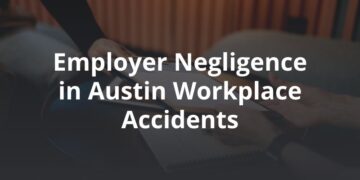Have you ever wondered what it means to have a suit filed? How does the process of filing a claim actually work?
A civil lawsuit is a claim filed by one party against another to resolve a dispute. The party filing the lawsuit is usually called the plaintiff, or petitioner, while the party responding to the suit is called the defendant. Civil lawsuits are filed for many different reasons. Personal injury claims, accidents and negligence issues, business disputes, and breach of contract claims are just some examples.
What is the Process of Filing a Claim?
Before filing a lawsuit, it is important to ensure that you will be filing in the appropriate court. For the court to be able to hear your claim, it must have proper jurisdiction. This includes the need to file in the correct type of court, whether it is a general trial court or a court with some special jurisdiction, such as a court for probate or land disputes.
You will also need to ensure the court is the correct venue, or in the correct location, to hear your claim. For example, in Texas, there are both district courts and county courts that can hear certain civil matters. The correct court in which to file can depend on the facts of the case, the amount of damages, and the residence of the person you are suing. Because jurisdiction issues can be complicated, consulting with a knowledgeable attorney is important — filing in the wrong court can leave you open to a motion to dismiss based on lack of jurisdiction. You will also need to be sure you are filing your claim within the allotted time limitations.
Once you have chosen your proper court, you will need to draft the initial document to state your claims. Often called a Complaint or a Petition, this document officially begins the lawsuit. It typically must include some important pieces of information:
- The identity and residence of the parties
- The most significant facts of the case
- The claims stated by the plaintiff
- The damages the plaintiff suffered and the relief they are asking for
- The signature by the plaintiff or their attorney that the contents of the filing are true
The Complaint or Petition is an extremely significant document. It sets out your initial claims, explaining the basis of your lawsuit, and it officially begins the lawsuit as well. Because of this, it is important to consult with an attorney who has experience filing claims in your appropriate court, so that you are including all pertinent information. And just what does it mean to “file” this document? Generally, it means bringing it to the court — or uploading it online, if electronic filing is allowed by the particular court — and also paying the required filing fees.
Once the initial document is filed, you will need to serve process on the opposing party. Service of process is in place to provide the defendant with notice of the claims against them. Typically, this is accomplished through hiring a process server, such as a constable, sheriff, or someone else authorized by the rules of procedure to serve the other party. Service consists of two documents: a copy of the Complaint or Petition, along with a Summons, which requires the defendant to answer the claims against them. The Summons is typically prepared by the clerk of the court in which you have filed your claim.
After the defendant is served with process, a few different things can happen. The other party can file its response to your claims, usually by filing a document called an Answer. In their Answer, they can admit or deny the allegations you have made against them, and they can also respond with claims against you — these are called counterclaims.
The other party can also file a motion to dismiss your claims, instead of an Answer, which will require the judge to review the claims and see if there is a valid reason to dismiss them — for example, if you failed to file in the correct court, or if your claim fails to state a proper legal basis. If the other party does not file any response to your claims, you may be able to get a default judgment against them by law.
Filing a case is often a complex process, making it important to have knowledgeable legal help. From finding the correct court to drafting the Complaint or Petition, to understanding the documents necessary for filing, an experienced attorney can be invaluable for filing your lawsuit.
How Can FVF Help if Someone Wants to File a Suit?
Because civil cases are difficult to navigate, we recommend that you consult with an experienced lawyer before you decide how to move forward. Our Austin lawyers at FVF are well-versed in personal injury law and can help you understand your rights, options, and likely outcomes in your case. We work to file claims on our clients’ behalf in the appropriate court, as well assist our clients by exploring settlement negotiations and other options prior to filing a case. Contact us today to learn more.






